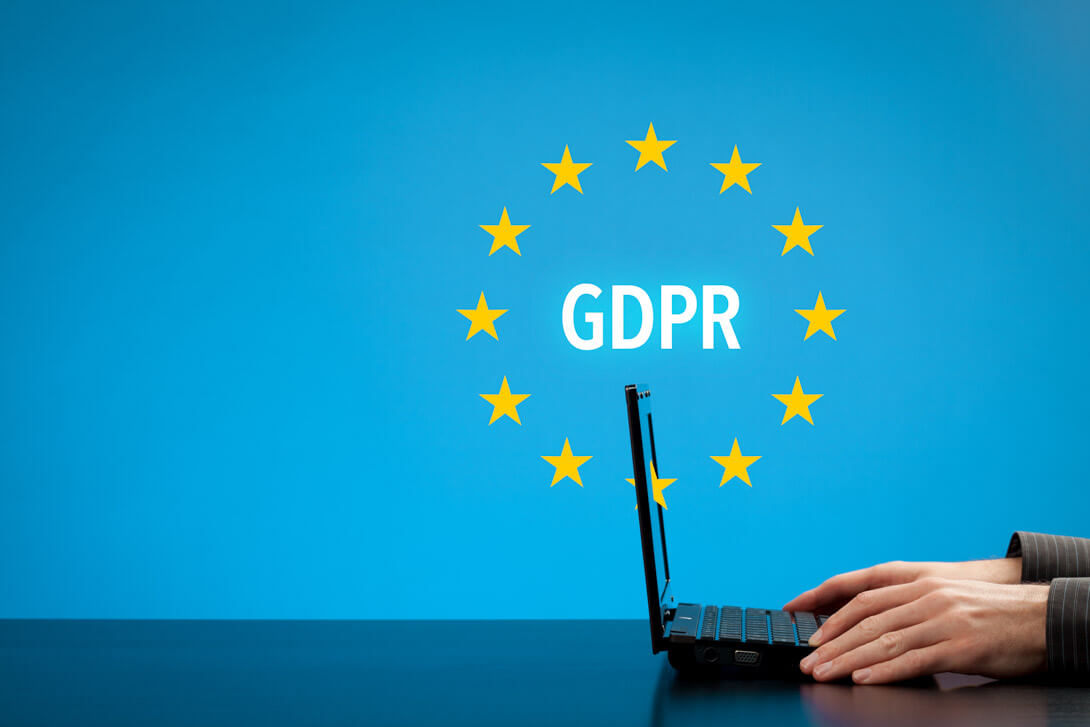The EU GDPR data protection policy has wide implications for the standards of data privacy. In the field of Cybersecurity and privacy 2018, one of the most famed occasions was the emergence of the European Union general data protection regulation (GDPR). This new standard came into force for all businesses on May 25th, 2018, which represented itself as the most broad-reaching and comprehensive data security regulation in history. To become compliant with GDPR is not only for the firms that are in European Union, but all the external firms that process the personal information of EU citizens.
The purpose of GDPR compliance is to provide consumers more assets over the personal records organizations gather about them. This comprehensive solution benefits organizations with situations of contents, data breach alerts, data storage measures, and power to consumers to use and remove their information. The complete accomplishment of compliance demands for some firms to significantly modify the procedures and technologies, which they use for data management.
Oh god! There is a lot of cloud computing security points covered in one EU GDPR data standard. This means that this data protection compliance has marked a dramatic change on papers. BUT, do you know what – the impact of GDPR in the digital market is not as expected. It is so because still many organizations are not compliant with GDPR.
A recent survey done by the International Association of Privacy Professionals reported that there are less than half of the respondents said that they are GDPR Compliant. As per the IAPP-EY Annual Governance Report 2018, nearly one out of five participants said that they feel that ‘full compliance with EU GDPR is impossible.’ It’s unable to understand that ‘why so many organizations are not yet compliant with general data protection regulation?’
Be Serious – Adoption of GDPR data regulation is not optional for companies, which process the personal data of EU residents. They have to pay a hefty fine if they don’t adopt the same.
Being compliant with GDPR could be complicated and demands substantial investments and alterations in existing technologies and procedures. Especially, GDPR compliance is critical for data centers.
What The Reason Behind the Low Rate of compliance with GDPR?
Even after coming into a major force, why businesses are not yet complying with GDPR standards? What is stopping them from doing the same? The EU GDPR is not at all 1st data protection compliance ever enacted. For example – there used to be a regulation named as 1988 data protection act in the UK. Several states like Alabama, Vermont, Colorado, etc., have passed the data laws. Also, there exists a checklist like the DFARS clause on Cybersecurity that enforces the organization establishing a contract with the US government. The GDPR data compliance might be the broadest range of standards of its type till today’s date that could be challenging for enterprises to adhere to.
To become compliant with GDPR, there might be a requirement for substantial shifts in technologies and procedures used in firms to manage data. This particular scenario is especially applicable for organizations that tackle a huge amount of data like data centers. Businesses that are in front of the curve might have already made a worthwhile modification in the pattern they work. Still, several organizations are not ahead and done no changes to become compliant with GDPR. To complete the GDPR compliance requirements, enterprises have to achieve granular control over their data. They must set up an architecture, which allows them to give a response to the request from the consumer’s end. This request can be any; associated with using or removing their personal records.
Also, industries have to create documentation and report procedures, which permit them to collect and access data along with documentation of other compliance methods. Enterprises should create strategies for maintaining proper communication with consumers. The purpose of this respective scenario is to alert consumers that how companies are planning to use their records, and notify them within 72 hours time period if a data breach occurs. Additionally, the EU GDPR standard has a lot of financial impact on organizations in the past year 2018. It is assumed that this will continue affecting enterprises in the coming years. As per the IAAP survey, organizations have invested an average of $1.3 million to become a GDPR compliant and expect to invest more around $1.8 million.
How to Become A GDPR Compliant?
It can be a challenging task to achieve compliance with GDPR but, the advantages outweigh this challenge. Completing the GDPR checklist is important for several organizations belonging to different domains, and specifically for data storage centers. These centers play a central part in the security of personal information. To become a GDPR compliant, data centers have to make substantial adjustments in their existing technologies and processes. Remember that adjustments are made before the rule went into effect. Following are the prerequisites for data centers to ensure compliance and a flawless transition:
- Create a sheet to make adjustments and establish a machine to fulfill GDPR requirements and give an immediate response to consumer’s requests.
- Make strategies to assure ongoing compliance and allow for room to adjust their procedures to potential settings in requirements.
- Hire a dedicated individual in business who oversees GDPR compliance and is capable of defining roles to ensure flawless transitions.
- Integrate across different domains and render transparency with the firm associate with data security.
- Make sure that all 3rd party service providers are also compliant.
Its Time to Conclude
Being compliant with GDPR comes with lots of substantial advantages for businesses as well as consumers. It deals with the personal records of customers who usually have trust in companies that they will keep their data secure. Especially, industries (especially data storage centers) must take major steps for ensuring that they are adhering to the GDPR requirements.

